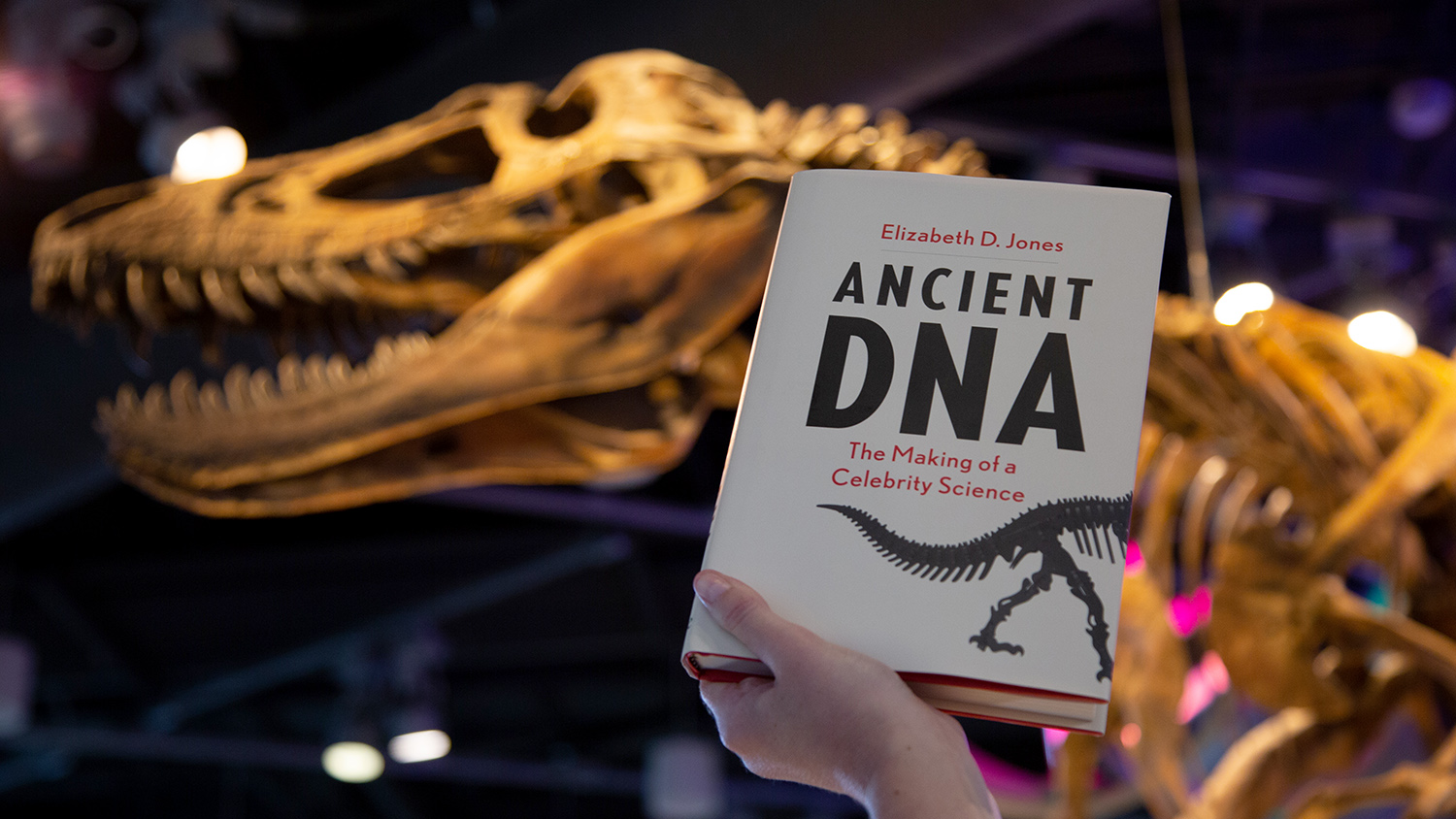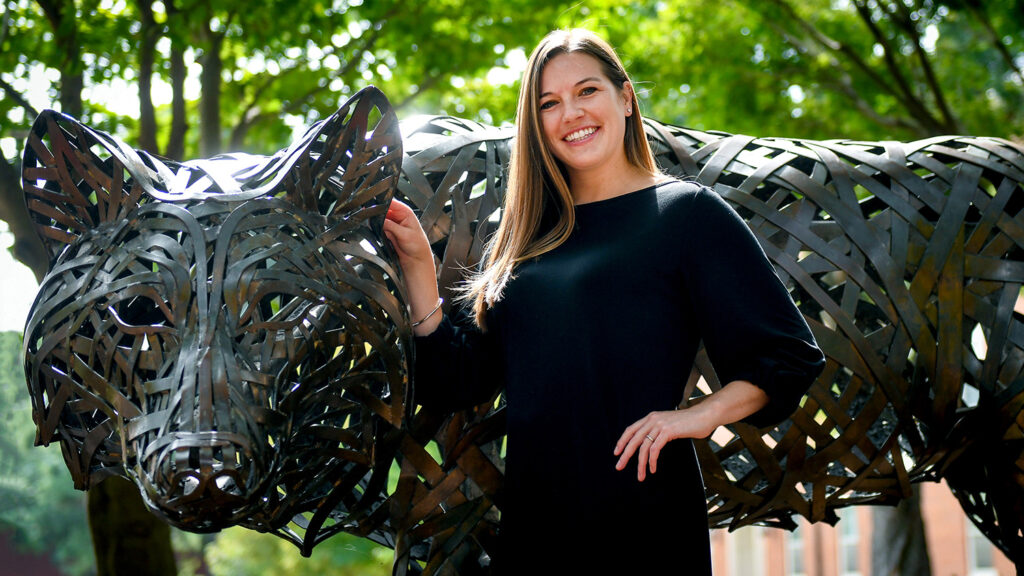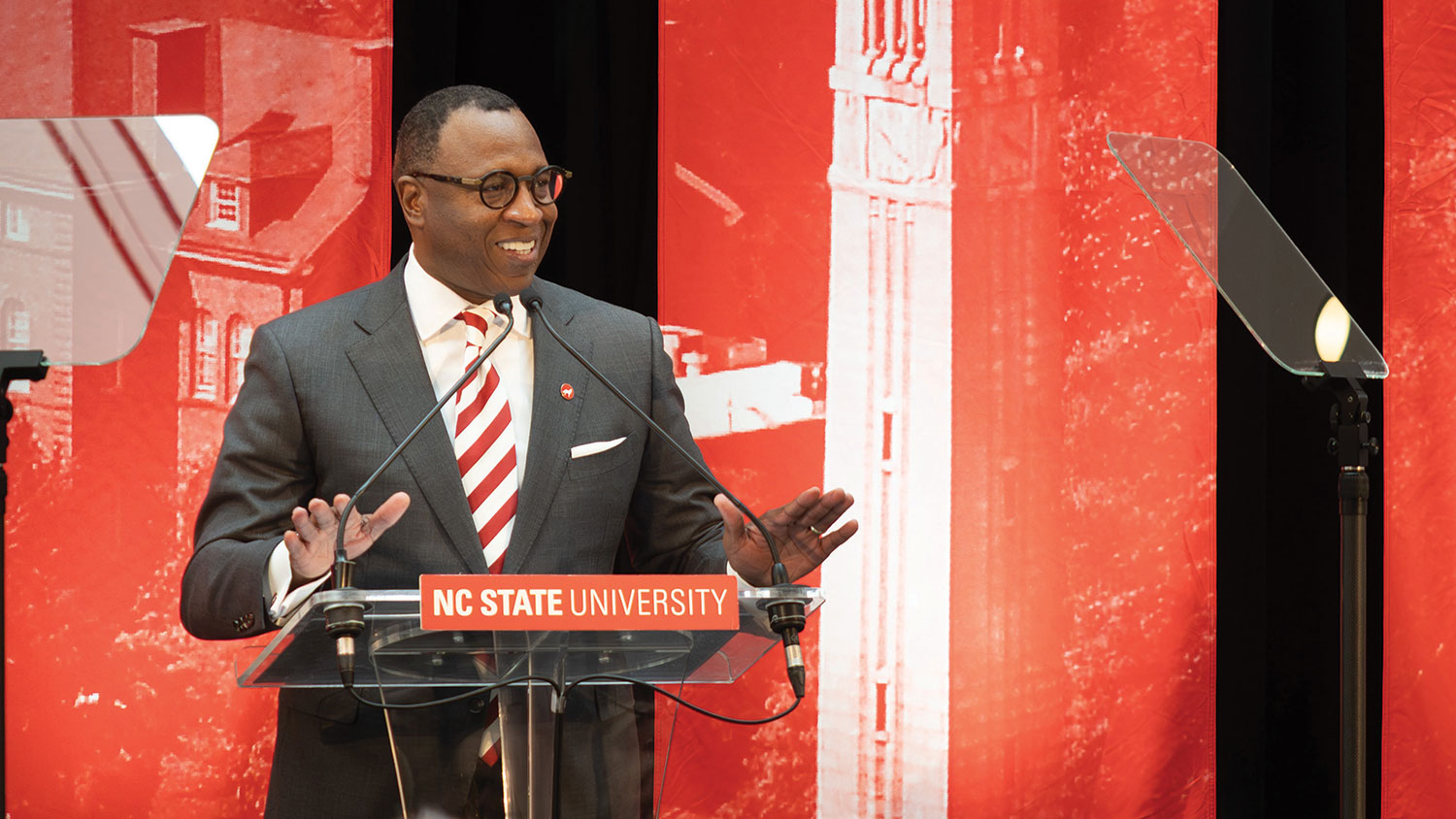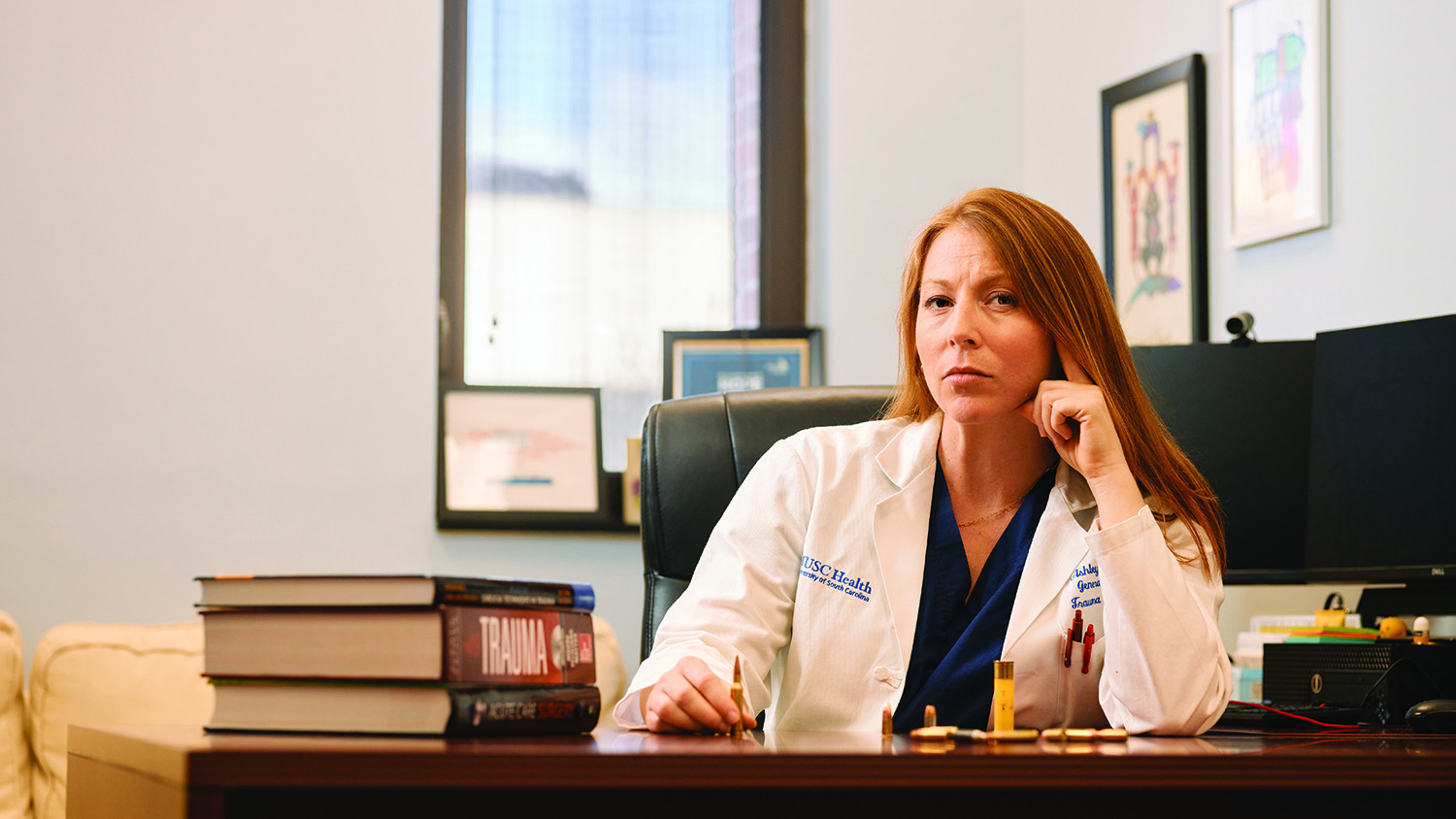Wolfpack Writers: Elizabeth D. Jones
Learn more about the NC State alumna's new book, Ancient DNA: The Making of a Celebrity Science.

Author and science historian Elizabeth D. Jones graduated from NC State in 2010 with a double major in history and philosophy.
Currently, she is an NC State postdoctoral research scholar and project coordinator for Cretaceous Creatures at the North Carolina Museum of Natural Sciences.
In her debut book Ancient DNA: The Making of a Celebrity Science, Jones explores how films like Jurassic Park and other popular media influenced the development of ancient DNA research over the past three decades.
Jones’s inspiration for the book started while she was an undergrad at NC State. She took an elective on dinosaurs taught by NC State molecular paleontologist Mary Schweitzer, who was among the first to publish on the discovery of ancient dinosaur proteins. That fascinated Jones, as did the motivation of scientists who extract DNA from fossils.
With encouragement from NC State history professor William Kimler, Jones joined the “history of science” research bandwagon and never looked back.
We caught up with Jones to learn more about her in-depth research, love of all things ancient, career in science and history, and her NC State experience.
What got you interested in ancient DNA and what motivated you to tell this story?
I took professor Schwitzer’s class mainly because I knew nothing about dinosaurs and needed to fulfill a general science elective. Her writing on the discovery of ancient dinosaur proteins was a big deal because proteins aren’t expected to withstand the test of time over hundreds of millions of years. DNA is even less likely to be preserved in the fossil record, but there was a small but growing field of scientists dedicated to exploring the possibility.
As a historian, I wanted to understand the why, when, and how behind such a pioneering idea, plus why there was so much controversy around it. When did scientists begin considering the possibility of extracting DNA from fossils? Why were they motivated to try something no one has tried before? How did they do it? What impact has it had on our understanding of evolutionary history? Professor Kimler was integral in teaching me how to combine this new and kind of weird passion for paleontology with the history of it all.

What kinds of research did you do for the book?
I conducted original and personal interviews with ancient DNA scientists. The advantage of being a historian of modern science is that most of the scientists I write about are still alive and available to interview. I used oral history methods, coupled with a sociology of science approach, to interview more than 50 researchers from more than a dozen countries to hear about and understand their experience in this field, and how it emerged, evolved and came to be an established research practice in evolutionary biology today. The interviews averaged two hours and I traveled across Europe and the U.S. to meet most of these scientists and visit their labs. The people who do this work are incredibly interesting. They’re a brilliant and competitive group of risk-taking scientists.
As a historian of science, I also undertook other typical methods of historical research such as reading books and articles by other authors and scholars, as well as hundreds of scientific publications and media reports in newspapers and magazines. And I searched through archives for original correspondences and documents. I also had the advantage of being gifted the original letters, newsletters, grant applications, research articles, conference abstracts, etc. from many of the scientists themselves that they had collected over the years. In a way, I was able to build my own ancient DNA archive that can be shared with other scholars.
How did you come up with the title for your book?
The title was always Ancient DNA; the subtitle, however, was up for debate. In publishing, the author has a say, but the editor, sales, publicity and marketing departments ultimately decide. We considered Ancient DNA: The Science Behind Jurassic Park, because it would be catchy but decided against it. The book is certainly about Jurassic Park and the influence it had on the field of ancient DNA research; however, it is so much more than that. It’s a bigger picture story of the making of a celebrity science in which Jurassic Park was a key influence but not the only one. Celebrity science is the intellectual argument of the book, and that deserved a place in the title.
Why is understanding the relationship between media and ancient DNA research important?
The historical, sociological and scientific development of ancient DNA research reveals that the media played a significant, repeated and intentional role in grant funding, research agendas, professional recruitment, publication timings and more. Without that part of the story, or an accurate portrayal of it, we risk not understanding how ancient DNA research came to be a scientific discipline. Like history, science is more than just names and dates of events. It’s also about people’s motivations, experiences, influences and interactions that play a role in the making of scientific discoveries and controversies. Science is not separate from society. Science is not disconnected from media and public interest.
How has your NC State degree impacted your career?
My career exists because of my degree and experience at NC State. I went to a small high school in the small rural town of Mount Pleasant (Hey mom! Hey dad!), and I wanted to go somewhere big for college. NC State was perfect because it was a big university with lots of opportunities, but I could do history and philosophy in smaller, intimate departments. It was the best of both worlds.
I’m incredibly lucky to have been at NC State where I ended up unexpectedly bridging the two seemingly different worlds of the sciences and humanities, and doing it in light of actual research in paleontology that was happening at the university. NC State’s connection to the Museum of Natural Sciences was also invaluable in showing me the links between academic research and public engagement.
Which book(s) might people be surprised to find on your shelves?
Ohhh, fun question! Well, I’m a Christ-follower, or I try my best to be, and that might be surprising as an academic in the sciences, especially because I used to be an atheist in college. So many of the books on my shelf are faith-based.
When do you write?
Ohhh, hard question! I have a full-time job, a toddler and a baby, so it’s pretty tricky to find time to write or to write well. In an ideal world, I like to write in the morning with a cup of hot coffee and no interruptions. Lovely. If I’m at a loss for words or ideas, I usually go on a run. I do a lot of “writing” in my head that way.
What’s next?
While this is my first book, it may not be my last. I want to write about commercial fossil collection, namely the buying and selling of dinosaur specimens across the U.S. and beyond.


